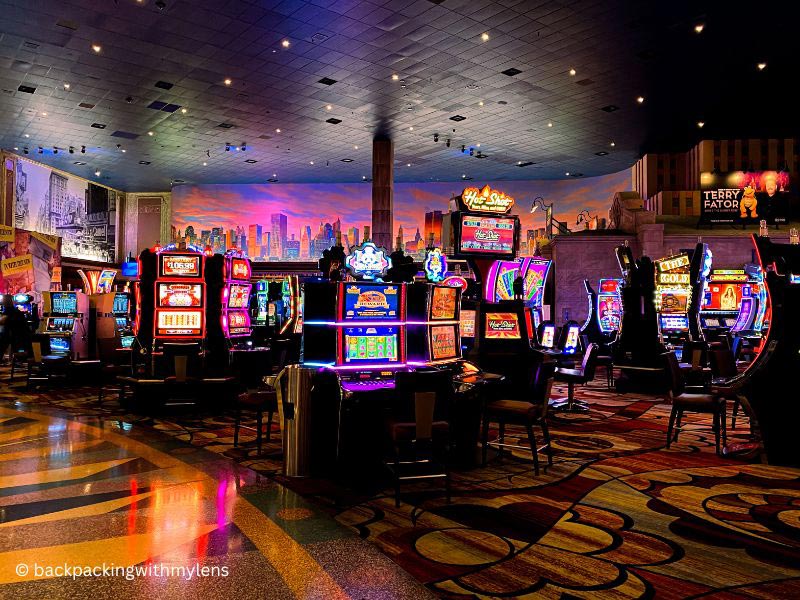
Casino games have captivated for years a wide range of players, offering not only the thrill of chance but also a unique experience tailored to diverse kinds of players. Including analytical thinkers who excel at skill and calculation to the casual players in search of entertainment, casinos understand the subtleties of their audience and design games that meet these diverse preferences.
In investigating the universe of casino gaming, we find a rich tapestry of game types that attract all types of players. Poker tables with high stakes entice competitive players, while vibrant slot machines appeal to those seeking instant gratification. Whether it’s the chance to win big or simply relishing the social environment, casinos design their game offerings to ensure that everyone can find their niche that feels comfortable and engaging. Comprehending how these games are tailored to different kinds of players can enhance not only our appreciation of them but also how we approach selecting which games to play.
Grasping Participant Groups
In the diverse world of casino entertainment, participants can be classified into separate categories based on their drives and choices. These participant kinds range from the relaxed and social gamers, who enjoy the fun value and community connections that gambling provides, to the more analytical and analytical players, who seek to increase their probabilities and winnings. Comprehending these distinct kinds is essential for casinos to tailor their services and design immersive settings.
One common type is the communal player, who sees casino games as a form of group interaction and fun rather than a serious gambling pursuit. These participants often enjoy games that encourage participation and togetherness, such as blackjack. Their emphasis is on the experience rather than the result, so vibrant atmospheres and collective moments are what they hold dear the most.
On the contrary end of the scale, tactical players are inspired by competition and the search of ability. They tend to gravitate toward games that require tactical planning and strategy, such as blackjack, where their abilities can influence the conclusion. This category often engages with the games on a more profound level, utilizing knowledge and strategies to gain an edge. Grasping these motivations allows casinos to create settings and game selections that suit to each participant’s individual choices.
Strategies for Game Design
Casino games are created with varied player types in mind, employing multiple strategies to attract and capture them. For casual players, the focus is on ease and ease of understanding. Games like slots are frequently visually appealing with straightforward mechanics. This allows players to enjoy the gameplay without a steep learning curve, fostering an inviting atmosphere. The vibrant hues, engaging audio, and themes create a playful environment where players can quickly get involved and enjoying themselves.
For tactical players who enjoy a more profound level of engagement, games such as poker and blackjack offer depth and skill-based elements. These games feature strategy and decision-making, appealing to players who thrive on challenge and want to exercise their mental skills. The design of these games often includes complex rules and mechanics that challenge players to refine their skills and create strategies over time, creating a fulfilling experience for those who enjoy mastering the game.
Additionally, social players are considered through games that highlight engagement and community. This includes live dealer games and multiplayer games, which cultivate a sense of community among players. The design of these games typically includes communication tools and social elements, allowing players to connect and share experiences. By creating an environment where participation is encouraged, casinos can effectively engage social players, making the gaming adventure more enjoyable and memorable.
Enhancing Player Experience
Casino titles have progressed significantly to offer a significantly immersive environment for players. Game developers focus on immersive images, immersive soundscapes, and novel game mechanics that pull gamers into the gaming environment. By employing digital advancements, such as virtual reality and augmented reality, gaming establishments ensure that gamers feel as if they are part of a exciting environment, enhancing not just the fun of the titles but also the overall enjoyment of being in a gambling venue.
Community engagement is another important aspect in improving player satisfaction in casino games. Numerous titles are developed to facilitate communication among gamers, whether through multiplayer modes or chat features. This community feature is attractive to gamers who enjoy interacting with other participants while engaging, fostering a feeling of community. In addition, community aspects can feature leaderboards, contests, and prizes for cooperative engagement, which capture ambitious gamers and encourage them to come back for further.
In conclusion, customization plays a pivotal role in adapting the experience for different gamer demographics. Casinos and game developers analyze gamer activities and preferences to offer customized gaming recommendations and benefits. By understanding the unique preferences of gamers, casinos can offer tailored deals, bonuses, and new titles that resonate with each individual, thus enhancing their overall satisfaction and devotion to the betting establishment. 8 day
